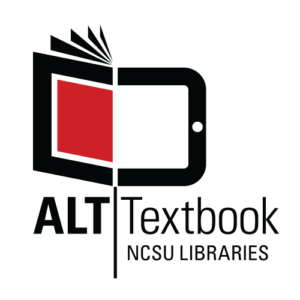Training
Past Workshops
- Open Science for Graduate Students
- What is Digital Scholarship?
- Publishing
- Build, Share, & Amplify Your Scholarly Profile Online
- Contemporary Publishing
- Copyright & Digital Media in PR
- Public Scholarship and Scholarly Identity
- Copyright in the Open
- Who Owns Your Work
- Series: Demystifying bias in data and AI
- Political division in social media algorithms, bias in healthcare data, and racism in facial recognition AI for policing are some of the bias-in-technology news stories we saw in 2020. These issues affect us all, but not everyone is an expert on both the technologies and the social issues they pose. This series of one-hour discussions will break down some of the basic technologic concepts and the prominent voices in the criticism of their social impact to give a bird’s eye view of the conversation in and out of academia. We hope to give attendees of all disciplines and expertise a space to learn about and contribute to the emerging conversation by using tangible examples of both the technologies and cases of bias in them along with resources to dig deeper.Part 1: Demystifying bias in data and AI: What is an algorithm anyway? Workshop slides We increasingly hear about data, algorithms, machine learning, and artificial intelligence in academic research, in business, and in the news. Data science impacts our everyday lives. But what exactly is machine learning? How does artificial intelligence work? What is an algorithm, anyway? In this conversational workshop, we tried to demystify some of these concepts and technologies to help beginners grasp the fundamental ideas. We used small, real world examples, many drawn from the news, to connect the language encountered with actual practices. By the end, people were not ready to do data science themselves, but they were equipped to understand the conversations happening around data and AI today.
Part 2: Demystifying bias in data and AI: How can an algorithm be biased? Workshop slides Data science and artificial intelligence inform decisions in research, business, and politics. Over the last several years, scholars like Safiya Noble and Cathy O’Neil have drawn increasing attention to the ways that data- and algorithm-driven decision making problematically reproduces prejudice and systemic injustice. In this conversational workshop, we explored several case studies to show how the data that drives decisions can embed social biases, like racism and sexism, and how the algorithms used in research and business can themselves be oppressive. This workshop built familiarity with key issues and suggested further readings so that those new to the concepts would be better equipped to take a critical perspective in relation to our data-driven world.
- Political division in social media algorithms, bias in healthcare data, and racism in facial recognition AI for policing are some of the bias-in-technology news stories we saw in 2020. These issues affect us all, but not everyone is an expert on both the technologies and the social issues they pose. This series of one-hour discussions will break down some of the basic technologic concepts and the prominent voices in the criticism of their social impact to give a bird’s eye view of the conversation in and out of academia. We hope to give attendees of all disciplines and expertise a space to learn about and contribute to the emerging conversation by using tangible examples of both the technologies and cases of bias in them along with resources to dig deeper.Part 1: Demystifying bias in data and AI: What is an algorithm anyway? Workshop slides We increasingly hear about data, algorithms, machine learning, and artificial intelligence in academic research, in business, and in the news. Data science impacts our everyday lives. But what exactly is machine learning? How does artificial intelligence work? What is an algorithm, anyway? In this conversational workshop, we tried to demystify some of these concepts and technologies to help beginners grasp the fundamental ideas. We used small, real world examples, many drawn from the news, to connect the language encountered with actual practices. By the end, people were not ready to do data science themselves, but they were equipped to understand the conversations happening around data and AI today.
Initiatives
The NC State University Libraries is committed to fostering change in the current textbook publishing environment. The Libraries’ Open Knowledge Center is available to partner with faculty members on licensing resources, using digital repositories, and creating and publishing their own open educational resources. The Alt-Textbook Project empowers faculty to innovate pedagogically, enhance access for NC State students to high-quality, tailored educational materials, and reduce the financial burden of expensive textbooks.

Incubators
The Open Pedagogy Incubator is a semester-long program designed to incentivize faculty to go beyond the first step in open education – adopting open course materials – to implement multiple open-enabled practices in their courses. Modeled on our successful Alt-Textbook program and the 2019 pilot of our OPEN Incubator, the Open Pedagogy Incubator brings together a cohort of faculty instructors to develop competencies in open pedagogy through a series of hands-on workshops, curated readings, and cohort discussions.
Open Incubator The OPEN (Open Project Engagement Network)Incubator is a research development program designed to advance a project from idea to proof-of-concept. Facilitators from the Open Knowledge Center and NC State University Libraries guide participants through a cohort-based collaborative experience that introduces open research principles and offers strategies for applying those principles to produce research outputs that are FAIR—Findable, Accessible, Interoperable, and Reusable.
